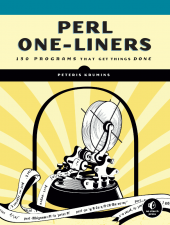Links are a bit rushed this week cause I’ve been on the road, but here you go.
explainshell – help for arbitrary shell commands. It’s a really good idea, implemented in a pretty way. (via)
True X-Mouse Gizmo for Windows. I’m also saving this for later, just like the person who found this link.
From the same place: The ARPANET IMP Program: Retrospective and Resurrection. Recreating the entire Internet, when the Internet could be summed up as a list of 5-6 locations.
How ALL CAPS and punctuation is now used to communicate mood. Communication methods still tied down by ASCII, and then UTF-8.
I miss USENET. (via)
A Testament to X11 Backwards Compatibility. Watch the video at the end. (via)
Your unrelated comics link of the week: There are more comics and illustrated works out there than there ever have been. A decade ago, I could buy a few art comics and a reprint each month and feel like I was keeping up. Now, it’s like a firehose of minicomic, self-published books, and prestige reprints that completely refreshes every week. The Comics Reporter 2013 Holiday Shopping Guide is huge but barely touches on it all. Read through and order something you aren’t familiar with; I can almost guarantee there’s several items in there you’ve never heard of.

